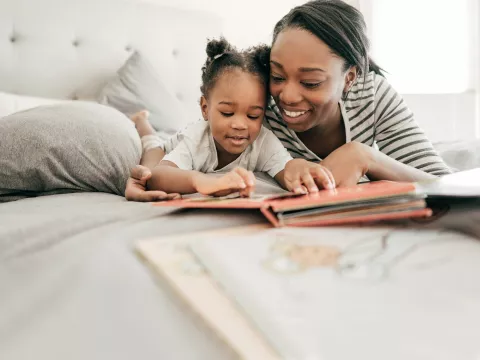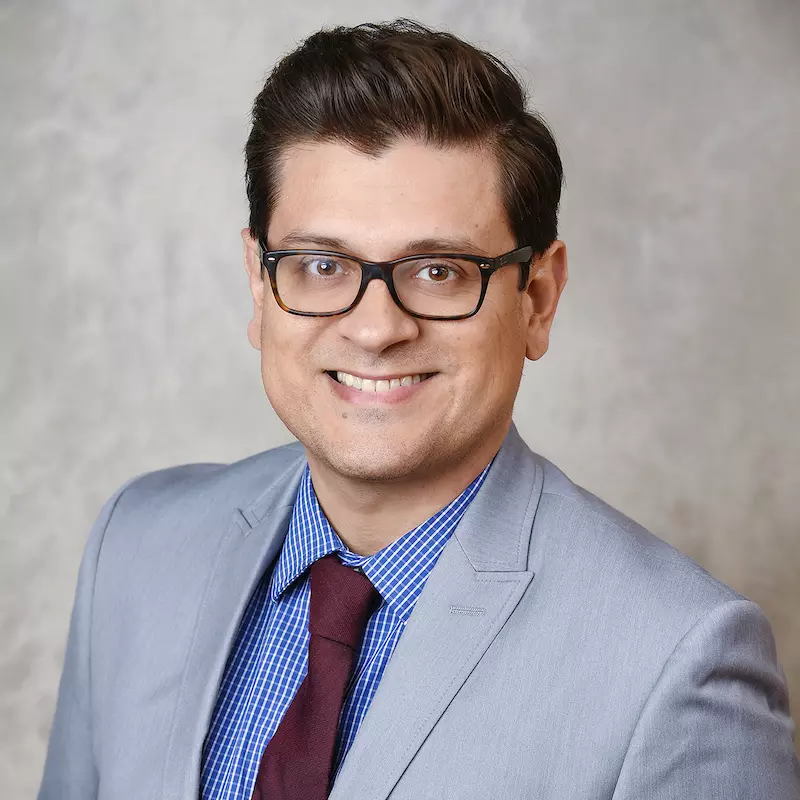- AdventHealth

A few days ago, I came across an interesting Facebook post from Mental Health Counselors of Central Florida. The post read, “MENTAL HEALTH IS JUST AS IMPORTANT AS PHYSICAL HEALTH.” As I self-quarantined at home during these last few weeks while playing daddy daycare, it gave me lots of time to reflect on this statement and what it means in our current global climate. Lives have been disrupted and measures have been taken by public health officials to enforce social distancing. Is it the flu? Is it allergies? Is it coronavirus? (For all you Seinfeld fans and to my fellow lupus comrades: “Lupus? Is it lupus?”)
The bottom line is that anxiety is at an all-time high. In my professional opinion, we’re only going to see more cases of generalized anxiety disorder, obsessive-compulsive disorder, and major depressive disorder. If a person was already predisposed to anxiety and depression, I can only imagine how much this could increase at this time. The best way to explain to my clients about the difference between depression and anxiety would be that depression is manifested from your past, while anxiety involves worries about the future, or the fear of uncertainty.
As various businesses and industries begin to furlough or lay off their employees, many people worry about their employment status and financial burdens. Many parents are struggling to work from home, while their kids are doing their best to wrap up the last few months of classes through virtual home school. Meanwhile, internet servers are crashing and causing angst amongst parents, county school officials, and even those practicing social distancing by trying to catch up on their favorite Netflix show. If you turn on the news, doom and gloom is all you see as scary statistics climb higher.
Anxiety is real, and no matter how you slice it, it produces fears of uncertainty and the unknown. Anxiety is the dense fog that obstructs your view when navigating through the dark, lonely roads as you drive with caution. Remember: MENTAL HEALTH is just as important as PHYSICAL HEALTH!
In a recent article from the Cleveland Clinic, clinical psychologist Amy Sullivan, PsyD, shared some helpful skills to help us during these times of uncertainty. Dr. Sullivan encourages Americans to be innovative and creative in the ways we cope with stress. With more people choosing to follow social distancing and self-quarantine guidelines, as well as stay-at-home orders in many counties and states throughout the country, cabin fever has caused many to feel stuck and isolated. What are you doing to feel unstuck?
The 5 steps recommended skills to manage your stress begin with exercising regularly. How are you fitting in exercise into your daily social distancing routine? More and more families and couples are biking or walking outside. To me, there’s nothing more glorious than to soak in some of God’s amazing creation as I walk with my family and enjoy the cool, spring breeze in the early morning, as I admire the blue skies and search for inspiring designs God sketched out in his canvas called the sky. I’ve even read stories of fitness instructors holding social distancing workout classes from their front porch, while encouraging members of the community to join in her exercise routine from their own front porch.
Dr. Sullivan also explains the importance of maintaining a healthy diet. A common behavior I see often is the consumption of foods like carbohydrates, refined sugars, and high fat foods during times when an individual is not hungry. This is known as emotional or stress eating. Now I won’t fault an individual for eating a piece of chocolate cake as their dessert. It only becomes concerning and a sign to explore the underlying issues when an individual graduates to more than one piece throughout the day and in the late night hours. What are you doing to maintain a healthy diet? If you’re like me and are quick to reach for that piece of chocolate cake, perhaps you can challenge yourself to refrain from the cake and incorporate other healthy alternatives into your regimen. For the competitive minds out there, perhaps engage in a physical or mental challenge for one week. Your sweet reward will be waiting patiently after completing your challenge. What other foods, or healthy choices, are you implementing into your diet?
The third skill is one that many struggle with, especially in our fast paced world. Many of us are on the go and constantly thinking about or preoccupied with the next task. Some also worry about tomorrow’s challenges before they’ve even tackled what today has given them. One of my favorite Bible verses comes from Matthew 6:24 (NLT): “So don’t worry about tomorrow, for tomorrow will bring its own worries. Today’s trouble is enough for today.” There have been many times throughout my life where I have wanted to take control of relationships, finances, career decisions, and lifestyle. As I began to explore my own anxiety, I recognized how little would be accomplished when I attempted to control my life circumstances. This verse from Matthew reminds me that anxiety grows when we fail to surrender control over the things that are out of our hands and otherwise consume our mind and our time. Anxiety is fear of uncertainty, and it is future-oriented. So take a break and evaluate the important things in your life. What are things that are in your control, and what are things better off surrendering that you can no longer control?
Another important step that Dr. Sullivan mentions is connecting with others. One thing I’ve been doing daily is calling my parents and having more conversations with them. My sister and I try to text each day. Just last weekend, my wife and I did a group Facetime with her parents and two sisters. It was a great opportunity for all the toddlers to spend virtual time together, as the adult parents and grandparents watch with joy. These are things I would not have normally done on a daily basis pre COVID-19. As a marriage and family therapist, I really like to emphasize the importance of having community safety. This entails having a group of people that are trustworthy, listen emphatically, and are not quick to judge, give advice, or “fix” your problems. In this time of uncertainty, we can choose to connect with others by encouraging each other and building each other up, just as many are doing within our community (1 Thessalonians 5:11). We can connect with others by doing good and sharing with those in need, as these are the sacrifices that please God (Hebrews 13:16). The humblest, most selfless act our healthcare workers and volunteers are doing each day is caring for the sick and the community, while sacrificing countless hours away from their loved ones. I can’t think of a greater connection than what many of our nurses, doctors, and other medical professionals provide to patients, family members, loved ones, and caretakers faced with the unknown of tomorrow. What are you doing to connect with others?
Lastly, Dr. Sullivan emphasizes the importance of getting good sleep and rest. Some of the symptoms of anxiety include feeling restless, difficulty concentrating, feeling tense, and trouble sleeping. So what’s the remedy to navigating through the different types of brain waves that control how we perceive, solve problems, think clearly, and organize and process our thoughts? The answers to these questions are closer than you think. The answers lie within us. In this race called life, my job is to help others sit in the driver’s seat of their story and construct a better narrative that helps them navigate around barriers and obstacles such as stress and anxiety. We all have that opportunity to redirect our path and our thinking. Let’s do it together!

|
Guest columnist Kenny Londono, MS, LMFT is a Clinical Psychotherapist at the AdventHealth Wellness Center Celebration
Lifestyle Clinic. |



